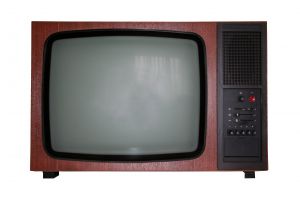By Jan Hunt, member of API’s Advisory Board and API’s Editorial Review Board. Reprinted with permission from www.naturalchild.org. 
During a debate on legislation that would require a minimum of three hours of “educational and informative” television each day, a USA Today article quoted readers’ viewpoints on the definition of “educational and informative.” One show that brought about disagreement among readers was “I Love Lucy,” a favorite of mine.
The view of many adult panelists was expressed by a Detroit reader: “While some of life’s valuable lessons may be included in shows designed primarily for entertainment, that does not qualify them as educational. Education can be fun, but it is a disciplined activity. ‘I Love Lucy’ just doesn’t fit the bill.”
The children who wrote to USA Today took a different view, pointing out that “I Love Lucy” teaches valuable lessons about the consequences of one’s actions. They saw Lucy Ricardo, whose escapades often backfire, as a sort of reverse role model and the show as something of a morality play.
This is an intriguing perspective, because Shakespeare’s plays developed from comic characters in early morality plays, and his theatrical productions, written for audiences of a broad social background, were the “popular entertainment” of the day. As author-historian Frank Wadsworth noted in his World Book entry on Shakespeare: “Most of the Globe’s audience consisted of middle-class citizens, such as merchants and craftsmen and their wives. They went to the theater for the same reasons most people today go to the movies — to relax and to escape for a while from their cares.”
Shakespeare’s plays were written with the intention of entertaining a mass audience, just as many TV sitcoms and dramas are written now. At the time they were written, his plays were definitely not considered “educational and informative,” nor would they have “fit the bill” as a “disciplined activity.” It was only from a later perspective that Shakespeare’s plays were deemed “educational.” In his day, there was even some criticism of Shakespeare as an actor-turned-writer, uneducated in traditional theatrical production. Had television been invented in Elizabethan times, it does not seem too far-fetched to imagine that “Hamlet” would have been one of the first TV dramas, criticized for its violence and passion. Today, of course, Shakespeare’s plays are considered a required part of a “disciplined education,” with the unfortunate result of dissuading many students from enjoying the pleasures of his works.
Clearly, the determination of whether a production is “educational” can change over time. Ultimately, any show can provide “educational and informative” material and food for thought on the thinking, fashions, roles, and lifestyles of its time. In fact, early shows like “I Love Lucy” are currently studied in university courses on American cultural history.
But is “I Love Lucy” educational in the ways that most people define that term? As a writer on parenting issues, I have been impressed with the way parenting is presented on this show. Little Ricky is consistently treated with more love, kindness, and patience than is depicted in most current television families. From my perspective, nothing is more “educational” than that which promotes and models empathic parenting skills, especially as this essential topic is not included in most school curricula.
My son, now 18, believes he has learned a great deal from “I Love Lucy” over the years, on many topics of interest. Here are the subjects of some of our conversations about this show:
- that a good show requires skilled writers
- that talented actors can improvise some of the best moments in a show
- that most of the currently produced shows are more violent, less consistent in quality, and more poorly written than earlier shows
- that persistence (such as Lucille Ball’s insistence that Desi be her costar) can bring about success
- that smoking was common in the 1950s and not well understood
- that marital roles have changed over the decades
- that an actor’s personal life can be very different from the role he or she plays
- that if you look into history you can sometimes discover where social changes may have been introduced (such as the three episodes in which Little Ricky is permitted to join his parents in bed when he needed emotional support)
- that even loving couples may not be able to sustain a marriage
- I could go on and on.
The indisputable point is that children are born with an insatiable curiosity. As long as we trust this process, and avoid destroying their curiosity through doubts and threats, and stuffy definitions of what is “educational” and what is not, children will continue to learn from every experience they have. Any arbitrary division of the child’s experiences into “entertainment” and “education” is inaccurate, misleading, self-defeating, and ultimately harmful.
Something we all know at birth, but which is soon reprogrammed by well-meaning but misinformed adults, is that anything and everything on this planet is educational. We do a real disservice when we teach a child that only some things are “educational,” meaning “dull,” “difficult,” “serious,” “for their own good,” and something they would never want to investigate on their own. This always backfires anyway, as children receive the unintended but unavoidable message that the “educational” topic being presented must be difficult and dull; otherwise why is it being forced on them? Perhaps the most non-educational thing we can do is to convince children that “education” equates with “dreariness.” Children know intuitively that learning should be fun. With this definition, “I Love Lucy” certainly “fits the bill” in our house.
It may be that more people enjoyed Shakespeare’s plays when they were told it was “entertainment” than they do now that they are told it is “educational.” Let us hope the same thing never happens to Lucy.